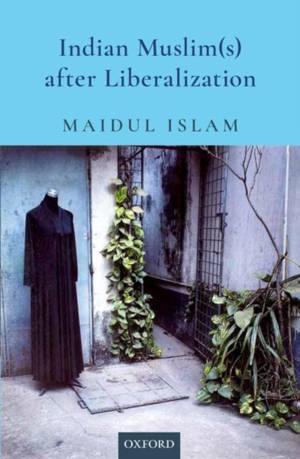
- Afhalen na 1 uur in een winkel met voorraad
- Gratis thuislevering in België vanaf € 30
- Ruim aanbod met 7 miljoen producten
- Afhalen na 1 uur in een winkel met voorraad
- Gratis thuislevering in België vanaf € 30
- Ruim aanbod met 7 miljoen producten
Omschrijving
This book deals with the problems of Muslim minorities in contemporary India. This book suggests that there are three principal reasons for a neglect of the socio-economic aspects of Indian Muslims during the period of neoliberal economic reforms. First, the problems of Muslims are inadequately understood by the governmental agencies and the political leadership. As a result, the state either ignores the real issues of the Muslims or tries to resolve them through a piecemeal approach. Secondly, the lack of a progressive leadership among the Indian Muslims has traditionally confined the problems of the community to the issues of identity and security instead of the demands for equity. Thirdly, popular Hindi cinema has misrepresented the identity of Indian Muslims by age-old stereotypes, demonisation and vilification without showing the actual problems of the Muslim minorities. As a result, the wrong notions, misconception, and myths regarding Muslims only proliferate and permeate among large sections of the Indian population while the structural problems of the Muslims hardly get attention for remedy. Finally, without being trapped in the Muslim question, this book has proposed three routes of radical democratic politics along with visions for a post-neoliberal order of reimagining India in the 21st century.
Specificaties
Betrokkenen
- Auteur(s):
- Uitgeverij:
Inhoud
- Aantal bladzijden:
- 336
- Taal:
- Engels
Eigenschappen
- Productcode (EAN):
- 9780199489916
- Verschijningsdatum:
- 2/07/2019
- Uitvoering:
- Hardcover
- Formaat:
- Genaaid
- Afmetingen:
- 142 mm x 224 mm
- Gewicht:
- 476 g

Alleen bij Standaard Boekhandel
+ 161 punten op je klantenkaart van Standaard Boekhandel
Beoordelingen
We publiceren alleen reviews die voldoen aan de voorwaarden voor reviews. Bekijk onze voorwaarden voor reviews.









